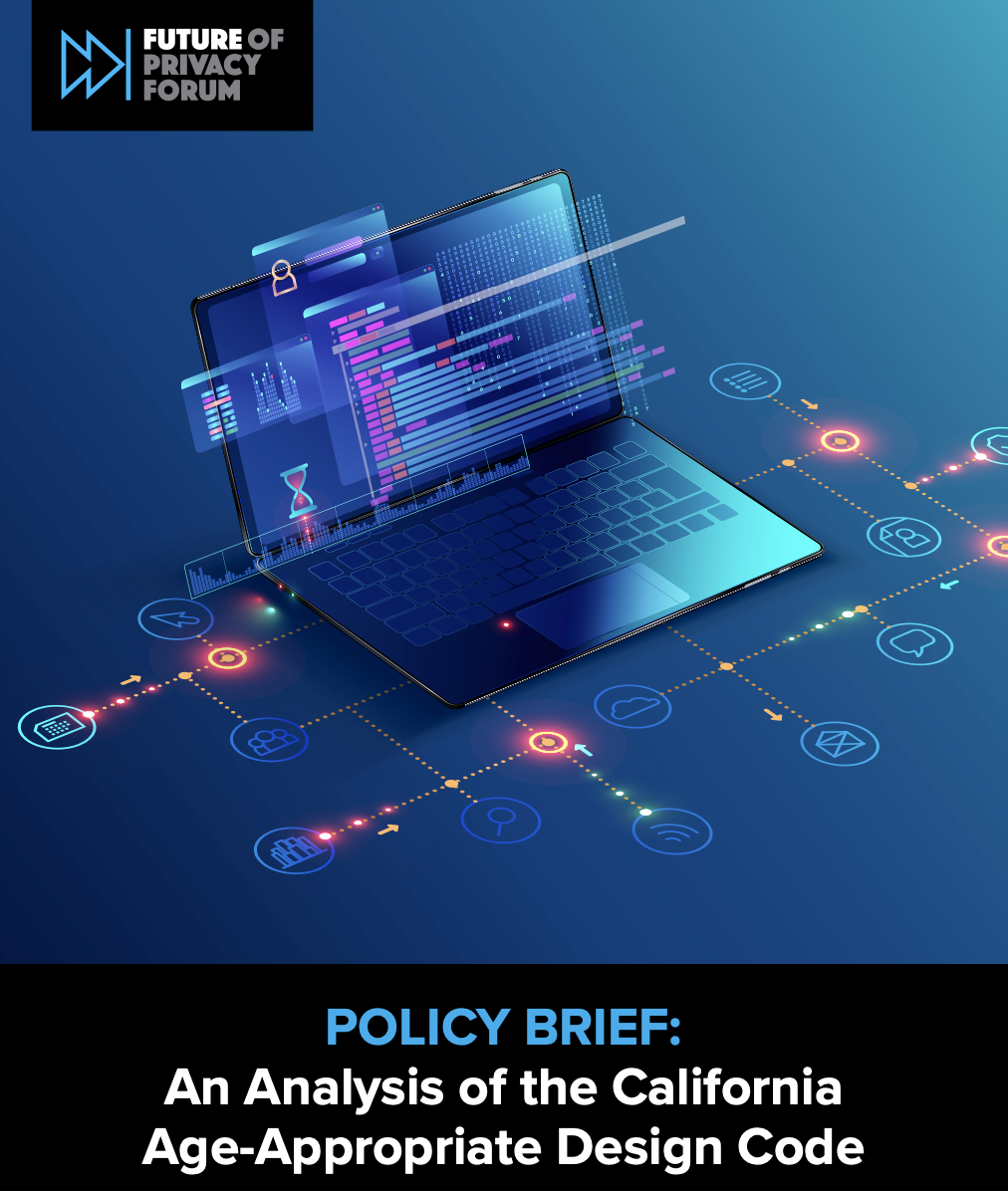Showing results for mbines bet secret bonus code koeln

FPF Releases Analysis of California’s New Age-Appropriate Design Code
[…] Education team is pleased to publish a new policy brief that builds on this first brief by providing a comparative analysis of the United Kingdom’s Age Appropriate Design Code (UK AADC) to the California AADC, which was modeled after the UK AADC. Learn more and download the UK and CA AADC Comparative policy brief here. New report […]

Judge declares Buenos Aires’ Fugitive Facial Recognition System Unconstitutional
[…] 398, but noted that beginning in 2019 it had documented “serious flaws” in the functioning of the SFRP leading to unlawful detentions. The decision found several inconsistencies between the local government and Public Defender’s assertions regarding unlawful detentions arising from SFRP “false positives.” When asked about the number of detentions due to “false positives,” […]

FPF Participates in FTC Event on “Commercial Surveillance and Data Security” Proposed Rulemaking
[…] outside the U.S. to evaluate the merits of different regulatory approaches. She specifically highlighted the privacy interests of children and the United Kingdom’s recent Age Appropriate Design Code, which includes transparency and data minimization standards. Mr. Erwin also highlighted the need to protect childrens’ privacy, while cautioning that some approaches can result in “privacy […]

Age-Appropriate Design Code Passes California Legislature
Update: On Sep 15, 2022, California Governor Gavin Newsom signed AB 2273, the California Age-Appropriate Design Code Act. The law will apply to businesses that provide online services, products, or features likely to be accessed by children and broadly requires businesses to implement their strongest privacy settings by default for young users up to the age […]

FPF at CPDP LatAm 2022: Artificial Intelligence and Data Protection in Latin America
[…] Accountability, and Trade Secrets On the second day of CPDP LatAm, FPF Policy Counsel Katerina Demetzou also spoke on a panel regarding Algorithmic Transparency, Accountability, and Trade Secret Preservation (original title ‘Transparência algorítmica, accountability e preservação do segredo de negócio’). This panel, moderated by Danilo Doneda, CEDIS-IDP, featured contributions from: Monica Tiemy Fujimoto, CEDIS-IDP; […]

New Report on Limits of “Consent” in Vietnam’s Data Protection Law
[…] the fundamental level, Vietnam’s Constitution provides for an inviolable right to privacy and legal protection of information regarding personal privacy and personal and familial secrecy. The Civil Code gives expression to these rights in a limited manner by, among others, requiring an individual’s consent for collection, use, retention, or publication of information about that […]

New Report on Limits of “Consent” in Australia’s Data Protection Law
[…] Legislation Amendment (Enhancing Online Privacy and Other Measures) Bill 2021” (Online Privacy Bill) which, if passed, would complement the Privacy Act by introducing a binding online privacy code with which social media and other online platforms would have to comply, or face legal penalties. The status of the Online Privacy Bill is currently uncertain […]

California Age-Appropriate Design Code Aims to Address Growing Concern About Children’s Online Privacy and Safety
[…] audience and traditionally do not host content directed to minors. This uncertainty would likely be exacerbated by ADCA’s applicability to teens; some organizations could struggle to distinguish between services likely to be accessed by 17-year-olds and services likely to be accessed only by those 18 and older. Baroness Beeban Kidron, an architect of the […]

When is a Biometric No Longer a Biometric?
[…] identify or track. 1. Types of Biometric and Body-Based Technologies In Future of Privacy Forum’s 2018 Privacy Principles for Facial Recognition Technology in Commercial Applications, FPF distinguished between five types of facial recognition technologies: detection, characterization, unique persistent tracking, 1:1 verification, and 1:many identification. The same distinctions apply readily to the broader world of […]

New FPF Report: Demystifying Data Localization in China – A Practical Guide
[…] on how to carry out each of them. By examining provisions of relevant laws and administrative regulations passed by ministerial departments, it aims to give organizations a better understanding of how the transfers framework operates, the expectations of Chinese regulatory authorities with respect to such transfers, and the specific steps controllers can take for […]
